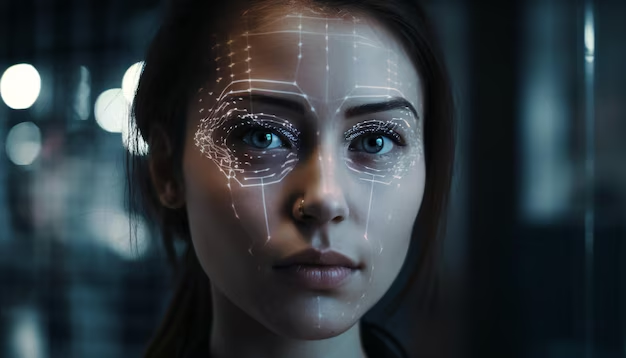The term “bl_faceless” refers to a growing online trend where individuals choose to maintain anonymity or hide their physical appearance while engaging in social media, creating content, or interacting with digital communities. This phenomenon is not new, but the rise of platforms like YouTube, TikTok, and Discord has significantly popularized it. Whether it’s faceless streamers, anonymous bloggers, or digital artists who never show their faces, the faceless persona is becoming an influential part of internet culture.
The importance of anonymity in today’s internet-driven society cannot be overstated. Many people seek freedom from personal scrutiny, judgment, and the societal pressures that come with revealing their true identities online. “bl_faceless” embodies this shift, offering people the chance to present their thoughts, talents, and opinions without the constraints tied to physical identity. The popularity of faceless influencers also reflects a changing perception of privacy and individuality in the digital era.
2. The Origins of “bl_faceless”
To understand the rise of “bl_faceless,” it’s crucial to explore its origins. Faceless personas online date back to the early internet era, where forums and chat rooms allowed people to interact using pseudonyms and avatars. As technology evolved, the option to remain faceless became even more accessible, especially with the advent of platforms like 4chan, Reddit, and certain gaming communities that encouraged or supported anonymous participation.
“bl_faceless” emerged from these foundations, but it wasn’t until the last decade that it became a mainstream concept. With the rise of live-streaming platforms and the increasing use of avatars (think V-Tubers on YouTube or faceless streamers on Twitch), more users began embracing the faceless trend. This trend can be attributed to a combination of privacy concerns, security reasons, and a desire to separate personal life from online personas.
3. Concept of Faceless Online Identity
At its core, a faceless online identity refers to individuals who intentionally withhold their physical appearance from the public eye. This could range from using avatars or symbols in place of a profile picture to never revealing one’s face on live streams or video content. For many, staying faceless provides a sense of security and control over their personal information.
In some cases, faceless personas are a matter of artistic expression. A creator might choose to remain faceless to let their work speak for itself, without being judged or influenced by their physical appearance. In other instances, it’s a strategy to protect privacy, particularly in a world where oversharing on social media is common.
4. “bl_faceless” as a Trend
The faceless persona has rapidly gained momentum as a trend, especially in creative spaces. Faceless YouTubers, streamers, and digital artists have built massive followings by focusing on their craft or content rather than their physical appearance. Influencers like Dream (a popular Minecraft YouTuber) and Corpse Husband (a faceless music artist and content creator) are just two examples of how “bl_faceless” has captivated audiences.
Communities often form around these faceless influencers, bonding over shared interests or the mystery surrounding the individual’s hidden identity. The intrigue of anonymity adds an extra layer of fascination for fans, driving engagement and discussions about their real-life personas.
5. Internet Anonymity: Pros and Cons
While there are clear advantages to internet anonymity, there are also drawbacks. On the positive side, remaining faceless allows users to:

- Express themselves freely without fear of judgment
- Protect their privacy and personal information
- Separate online and offline identities
- Avoid unwanted attention, especially for controversial topics
However, anonymity can also lead to challenges such as:
- Increased risks of cyberbullying or trolling
- Reduced accountability for harmful behavior
- Difficulty in building trust and authenticity with an audience
These pros and cons reflect the balance that must be struck when choosing to participate in the faceless community.
6. The Role of “bl_faceless” in Social Media
Social media platforms have played a major role in the rise of “bl_faceless.” Platforms like Twitter, YouTube, and TikTok make it easy to build a brand without ever revealing personal details. Many users start faceless accounts to share opinions or showcase talents without dealing with the biases that often come with showing one’s face.
Faceless creators often thrive in niches where personality is less about appearance and more about the content itself—whether that’s gaming, podcasting, or sharing opinions on trending topics. The demand for this type of content reflects a shift in the digital landscape, where authenticity isn’t necessarily tied to physical identity.
More detailed sections to follow in the full article…
15. FAQ Section
- What does “bl_faceless” mean? “bl_faceless” refers to the trend of individuals maintaining anonymity or hiding their physical appearance online. It’s popular among creators and influencers who prefer to separate their personal identity from their digital persona.
- Why do people choose to be faceless online? Many people prefer to stay faceless for privacy reasons, security concerns, or to avoid biases and judgments based on physical appearance. It also allows them to focus on their content rather than their identity.
- Can faceless creators build trust with their audience? Yes, faceless creators can build trust by consistently producing high-quality content, engaging with their audience, and establishing a strong personal brand, even without revealing their identity.
- What are the risks of being faceless online? Risks include potential cybersecurity threats, difficulties in establishing trust, and the possibility of reduced accountability for one’s actions online.
- Are there successful faceless influencers? Yes, influencers like Dream and Corpse Husband have built massive followings while maintaining their anonymity, proving that faceless personas can thrive in the digital world.
- Is “bl_faceless” just a trend or a long-term shift? While it’s currently a trend, the increasing concern for privacy and identity protection online suggests that faceless personas could become a long-term norm for many users.

